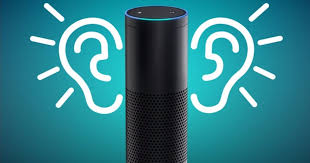
Recent reports of the amazing eavesdropping power and home control Amazon’s Alexa has (similar to other voice-assistances) should not surprise. Its inherent in how these virtual assistants work.
Alexa has to always be listening to be able to respond to a voice command that may come from you yelling across the kitchen. She has to be ready to respond to back-and-forth question-response to receive further clarifying instructions if needed, so she often may keep listening in case you may add a detail. She needs to record the conversations onto Amazon computers and transcribe the resulting instruction, in order to process the data and invoke the commands. She takes good notes of what you would like to have happen (i.e. keep logs that Amazon staff can see, in case there is a need to trouble shoot). She has access (or will soon) to your internet connected devices (think door locks, heating, lights, and much more as people upgrade utilities).
And, you have invited her into your house to hang around the main areas where you may need her assistance.
So, considering you know all of this, why then might you be shocked by the reports that are starting to come in; about how Alexa may not be perfect, or may be “spying” on you?
Here are two interesting reports that may open your eyes to what is to come in the near future.
These are early days of Artificial Intelligence, Internet of Things, and Digital Assistants. Alexa is just a few years old. She is like an old Motorola flip phone compared to the power and influence she will have when she becomes a teenager, in a few years to come.
Privacy may become a quaint concept for those that want to enjoy the latest technological innovations; for those that invite Amazon, Google, and Apple into their living rooms.

February 20, 2026
.jpg)
February 13, 2026

February 06, 2026

January 30, 2026

January 23, 2026